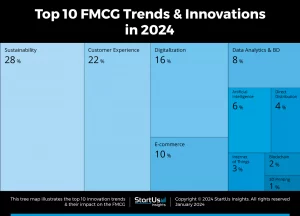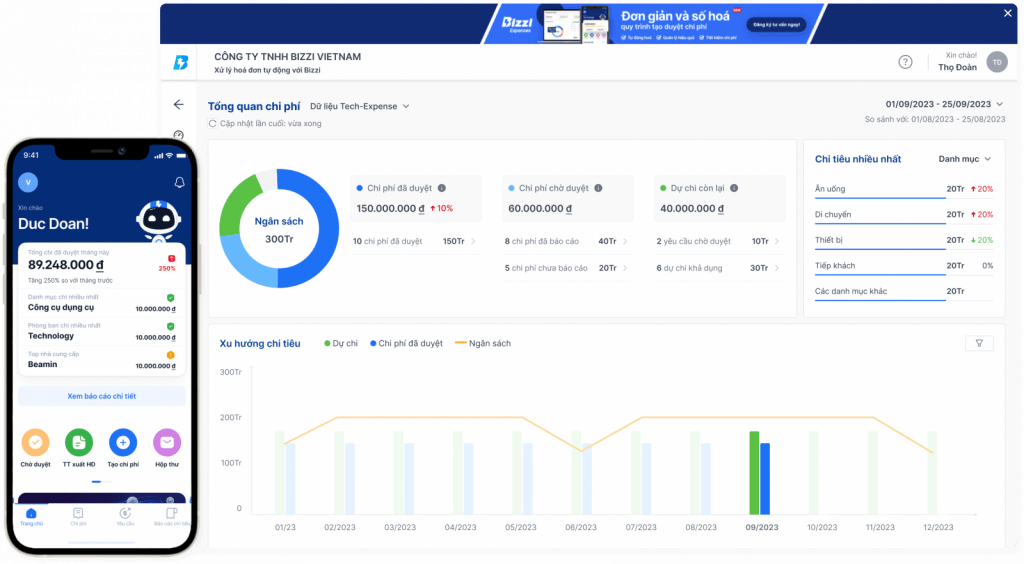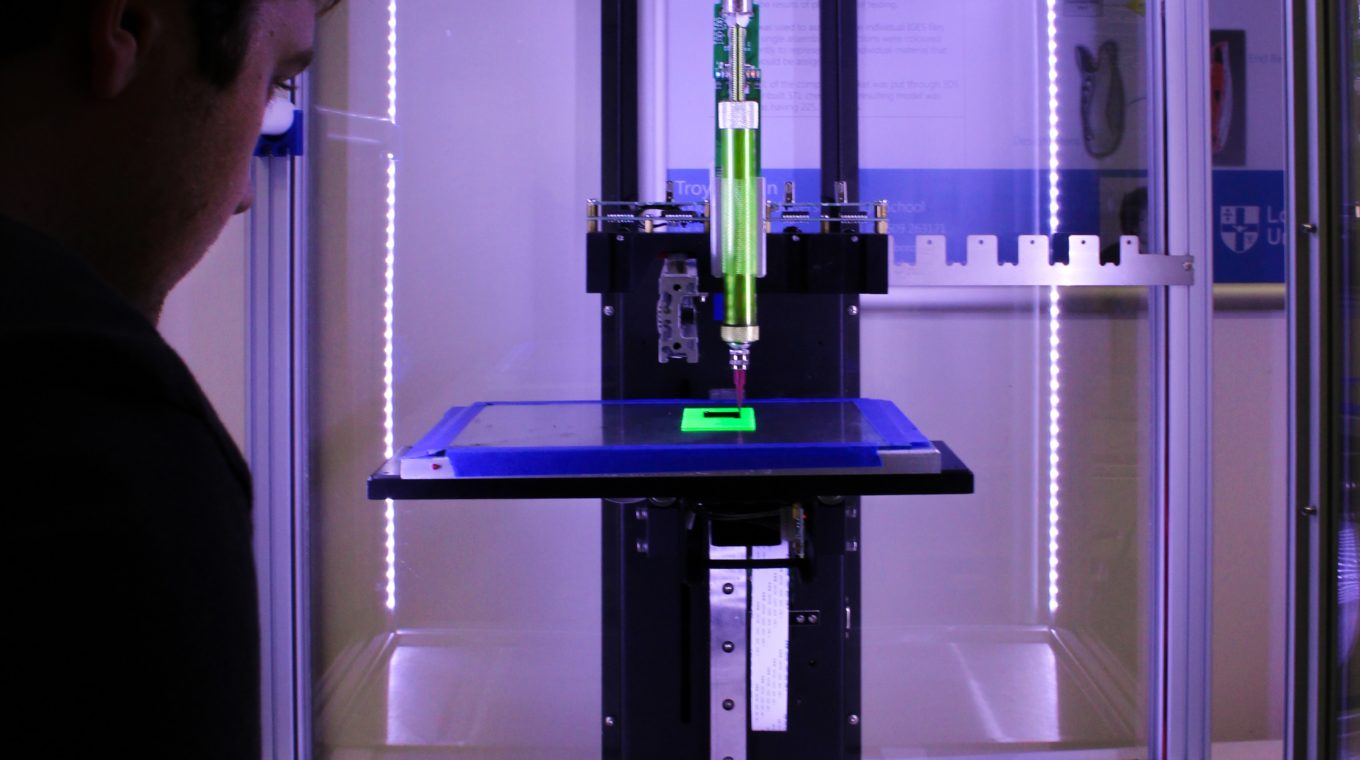The fast-moving consumer goods (FMCG) industry is undergoing a significant transformation to meet the need for convenience, adapt to the COVID-19 pandemic and changes in consumer behavior. FMCG industry trends that are addressing these changes include:
- Sustainable product and packaging development: Minimize impact on the environment.
- Improve customer experience: Create a seamless and enjoyable shopping journey.
- Digital conversion: Leverage technology to improve efficiency and personalize experiences.
To deliver better customer experience and create a competitive advantage, FMCG companies are looking forward multi-channel sales and ecommerce, and at the same time deploy solutions big data, analytics and artificial intelligence (AI). Devices Internet of Things (IoT) and technology 3D printing further helps FMCG companies improve their direct distribution capabilities, meeting the increasing expectations of customers.
Join Bizzi to learn about 10 FMCG industry trends in 2024!
Based on the FMCG Innovation Map, the Tree Map below illustrates the impact of the top 10 FMCG industry trends in 2024. Innovations in the FMCG industry meet growing consumer demand for convenience , sustainable and engaging experiences. The penetration of smartphones globally is also driving digitalization and the growth of eCommerce, pushing companies towards implementing technologies such as AI, Big Data, IoT, Blockchain and Printing. 3D.

FMCG brands adapt product development, production and packaging to meet consumer demands for sustainable processes and improved convenience. Online stores open up new avenues for data management and analytics that help increase revenue for FMCG companies. For example, more and more brands are directly distributing and selling to their customers through online channels, thereby reducing logistics costs.
Sustainability
Consumers are increasingly concerned about climate change, leading to a shift in their choices. They target companies that prioritize social responsibility and provide sustainable product options. FMCG companies are responding by rethinking their product packaging and materials.
Biodegradable, recyclable and reusable packaging is becoming the norm among FMCG companies. At the same time, the use of cruelty-free and vegan ingredients in both food and non-food items is also increasing. At the same time, energy-efficient manufacturing and renewable energy sources are being applied to reduce carbon footprints.
For example, Flexi-Hex is a UK-based startup that produces environmentally sustainable packaging, allowing FMCG companies to reduce packaging waste. They offer adaptable, plastic-free solutions with a proprietary honeycomb design made from recycled paper. Flexi-Hex's goal is to eliminate plastic from the packaging industry and raise awareness of the threat plastic poses to the ocean.

Customer experience
With the growing demand for convenience in the FMCG sector, companies are working to significantly improve customer experience. Startups are using Augmented Reality (AR) and Virtual Reality (VR) technology to make products more engaging and interactive. 3D video and gamification engage and entertain customers while providing them with more information about the product. Furthermore, investing in improving customer experience builds trust and increases brand loyalty.
DRNKAR: This Singapore startup's solutions include AR Social Media, AR Mobile App and AR Platform. AR Social Media attracts buyers through advertising and social media activity and leads them to the website to make a purchase.
.png)
AR Mobile App provides 2D and 3D animations to display expanded product details, while AR Platform allows FMCG companies to control and manage their content and product information, as well as gain insights more about consumer behavior. Overall, the startup's solutions help FMCG companies create memorable customer experiences and improve consumer engagement.
Digitizing
Digital transformation is taking place strongly in the FMCG industry. Brands are establishing connections with customers through many online and offline channels.
Companies collect valuable data from many sources, including various social media platforms, web and mobile applications. This drives the digitalization trend in the FMCG industry, allowing brands to interact more effectively with customers and convert one-time customers into repeat shoppers.
Gladminds: This Indian startup offers a cloud-based customer connection platform that allows brands and customers to communicate two-way. The platform helps companies optimize and personalize services, marketing and communications, thereby connecting with customers and ensuring long-term product support.
FMCG e-commerce
E-commerce (e-commerce) in the FMCG sector is witnessing a strong increase in both B2C (business to consumer) and B2B (business to business) sales. This was driven by the COVID-19 pandemic, which shifted consumer shopping habits to online channels.
Social media platforms like Instagram are becoming major players in e-commerce, with more and more items being sold through these platforms. FMCG startups are leveraging diverse media, including mobile commerce and headless commerce, to market products.
Additionally, integrating advanced analytics into e-commerce systems enables accurate demand forecasting, leading to optimized inventory levels and reduced waste for FMCG companies.
Big Data
Big data is revolutionizing the FMCG industry, providing powerful insights into customer behavior. With the growth of online shopping, brands are leveraging this data to improve customer relationships.
Analyzing FMCG data helps deepen understanding of purchasing habits, driving product development. In addition, this technology allows forecasting market trends, supporting strategic planning. Finally, real-time data analytics ensures effective supply chain management, from product distribution to inventory control.

Massive: This Italian startup develops a solution for analyzing consumer reviews. The company leverages AI to monitor e-commerce websites to read and understand customer feedback. The data collected provides FMCG companies with insights that support customer-centric business strategies.
AI in FMCG
AI-powered solutions, such as machine learning (ML) and natural language processing (NLP), are changing the game for FMCG businesses Voice systems provide 24/7 support, helping Consumers discover products. Recommendation engine, another AI application, provides personalized product recommendations, enhancing customer experience.
Integrating chatbots and virtual assistants into your customer service platform ensures immediate, effective support, strengthening brand loyalty. Furthermore, AI contributes to predictive maintenance of manufacturing equipment, reducing downtime and increasing productivity.
C-gence: This Polish startup develops an AI-based solution to provide consumer intelligence. This is a real-time web invoice scanner that helps collect invoice data without manual data entry.
In this way, the solution enables FMCG brands to deploy consumer activation activities faster and at a lower cost, while reducing barriers to entry. This eliminates fraud and provides more complete consumer data in real time.
Or in Vietnam, Bizzi is a prime example of how AI is applied in FMCG to benefit businesses. Bizzi's solutions help FMCG companies manage spending effectively, enhance budget control and improve profits.
Bizzi Vietnam provides streamlined cost management solutions for FMCG businesses, using AI to:
- Automate accounting work: The Bizzi Expense solution uses real-time invoice scanners, which help check invoice validity quickly, eliminating manual data entry and reducing the risk of fraud.
- Enhance cost control ability: Businesses can closely track and monitor expenses, ensuring effective use of capital.
- Control the budget of the organization/project or department: Businesses can budget and track spending by fiscal year. You can track your business's spending by each category to evaluate how the situation compares to the budget plan.
- Overspend warning: The warning system automatically notifies users when spending exceeds the budget, helping to control costs effectively.
- Improve profits: Effective cost management helps increase profits and competitiveness for businesses.

Direct distribution to consumers (D2C)
Traditional distribution channels with many intermediaries can be expensive and limit a brand's control over the customer relationship.
Direct to consumer (D2C) distribution allows FMCG companies to connect directly with end customers, driving loyalty and higher profit potential. This trend is consistent with the rise of e-commerce and mobile technology.
- Increase customer engagement and loyalty
- Improved control over brand image and pricing
- Be more flexible and agile with market trends and customer preferences
- Potential cost savings by reducing reliance on intermediaries
IoT in FMCG
Efficient supply chain management, real-time customer interaction and product quality assurance are always the top concerns of FMCG companies.
The Internet of Things (IoT) is revolutionizing the FMCG industry, providing intelligent and automated solutions to these challenges. Affordable and easy-to-use IoT devices are widely used in FMCG stores, warehouses and manufacturing facilities.
- Real-time customer interaction: Communicate directly with customers through in-store IoT devices, providing product information, promotions and personalizing the shopping experience.
- Efficient inventory management: Track accurate inventory levels in real-time, minimize shortages and optimize storage costs.
- Monitor storage conditions: Ensure temperature, humidity and other storage conditions are suitable for each type of product, especially perishable goods.
- Integrate with new technologies: Combine IoT with artificial intelligence (AI), machine learning (ML), and other technologies to create more advanced solutions.
Connected Fresh – an American startup that offers plug-and-play sensors to monitor temperature in warehouses and at points of sale, helping FMCG companies monitor product status in real time and ensure quality .
Blockchain
The increasingly fierce competitive environment in the FMCG industry forces brands to constantly innovate to maintain their advantage.
Blockchain technology with smart contracts and traceability is being leveraged by FMCG companies to solve supply chain problems and increase transparency for consumers.
- Identify and resolve bottlenecks in the supply chain: Blockchain helps track products from raw materials to consumers, allowing companies to quickly identify and resolve potential problems.
- Enhance transparency for consumers: Consumers can trace the origin of products, ensuring quality and authenticity, thereby building trust in the brand.
- Loyalty programs and cryptocurrencies: Blockchain forms the foundation for cryptocurrency loyalty programs, helping to attract and retain customers more effectively.
- Product authentication and quality assurance: Blockchain provides an immutable record of product origin, production and distribution, helping to combat counterfeiting and ensure quality.
BlockTac: This Spanish startup develops “Blockchain Stamps” to combat counterfeiting using blockchain technology. Each stamp is unique and attached to each product, allowing buyers to verify their authenticity. By scanning the QR code on the stamp with a mobile phone camera, the legitimacy of the product is confirmed. BlockTac's system prevents counterfeits by detecting duplicate stamps as fraudulent. This allows FMCG companies to increase customer trust and convenience.
3D Printing
The FMCG industry is facing the problem of plastic waste and the need for sustainable production. Disposable products are often wasteful and harmful to the environment.
3D printing is emerging as an innovative technology that addresses this challenge. This technology allows the design and development of products using environmentally friendly materials, minimizing the use of plastic.
- Minimize plastic waste: Using recyclable and biodegradable materials in 3D printing significantly reduces the amount of plastic released into the environment.
- Sustainable production: On-demand 3D printing helps reduce overproduction and waste of resources.
- Quick Prototyping: FMCG companies can easily prototype and test new designs without spending a lot of time and money.
- Customization and personalization: 3D printing allows for the creation of products personalized to each customer's needs.
- Distributed production: 3D printing can be done locally, minimizing shipping costs and environmental impact.

Mything: This Austrian startup is an online marketplace that connects companies with local digital and additive manufacturers for on-demand 3D printing. The platform enables FMCG brands to optimize production and reduce costs by reducing shipping distances, lead times and material waste.
Overall, the 10 FMCG industry trends mentioned in this article show that the industry is undergoing an important transformation. FMCG companies need to grasp these trends and apply them effectively to thrive in today's competitive business environment.
By innovating and adopting the latest technologies, FMCG companies can meet growing consumer demands for convenience, sustainability and engaging experiences.
Monitor Bizzi To quickly receive the latest information:
- Facebook: https://www.facebook.com/bizzivietnam
- Linkedin: https://www.linkedin.com/company/bizzi-vietnam/
- Youtube: https://www.youtube.com/@bizzivietnam





